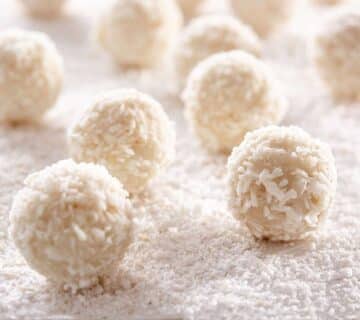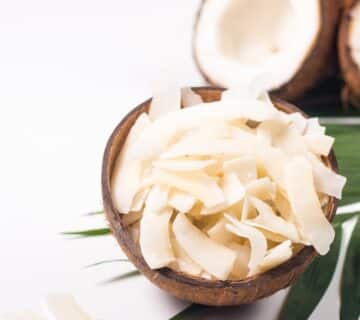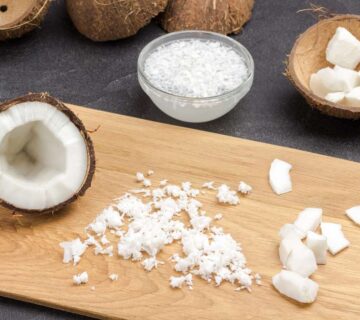When you decide to import desiccated coconut, sourcing from Indonesia can be a strategic choice for your business. Indonesia is renowned for its rich agricultural resources, particularly coconut, which makes it one of the largest producers of high-quality desiccated coconut in the world.
Importing desiccated coconut from Indonesia offers you a premium product that is versatile and widely used in various industries, including food and beverage, confectionery, bakery, and cosmetics.
This article will guide you through the essential steps and regulations for importing desiccated coconut, from identifying trustworthy suppliers to understanding import rules.
Why Import Desiccated Coconut from Indonesia?
Importing desiccated coconut from Indonesia offers numerous benefits due to the country’s ideal growing conditions and expertise in coconut production.
Indonesia’s tropical climate and rich soil contribute to the superior quality of its coconuts, resulting in desiccated coconut that is rich in flavor, texture, and nutritional value.
The country is a leading global supplier, known for its consistency and reliability in producing high-grade desiccated coconut.
By choosing Indonesian desiccated coconut, businesses gain access to a product that meets international standards and is often available at competitive prices, making it a preferred choice for various culinary and industrial applications.
Uses of Desiccated Coconut
Desiccated coconut is a versatile ingredient with a wide range of uses across various culinary and industrial applications. In the food industry, it is commonly used to enhance the flavor and texture of baked goods, confectioneries, and snacks, adding a rich coconut taste and a pleasant crunch.
It is also a popular addition to smoothies, granola bars, and desserts, providing a nutritious boost. Beyond food products, desiccated coconut is used in cosmetics and personal care items for its moisturizing properties.
Its natural sweetness and high fiber content make it an appealing choice for health-conscious consumers and product developers alike.
How to Identify a Trusted Desiccated Coconut Supplier
When seeking a reliable supplier for desiccated coconut, it’s crucial to carefully evaluate potential partners to ensure you receive high-quality products consistently.
Here are key points to consider when identifying a trusted desiccated coconut supplier:
1. Evaluate Reputation and Experience
Look for suppliers with a strong track record and positive reviews in the industry. Established companies with years of experience are more likely to provide high-quality products and reliable service.
2. Check Product Quality
Request samples and assess their quality, including texture, taste, and moisture content. Quality certifications and adherence to international standards are also important indicators of a reputable supplier.
3. Review Shipping and Service Policies
Ensure the supplier has clear and efficient shipping procedures, with transparent policies regarding delivery times, costs, and handling of damaged or incorrect orders.
4. Pay Attention to Regulatory Compliance
Verify that the supplier complies with relevant regulations and certifications, such as food safety standards, halal, and kosher certifications. This ensures the product meets necessary quality and safety requirements.
5. Effective Communication
Choose a supplier that communicates promptly and effectively. Good communication is key to addressing any issues, clarifying requirements, and ensuring smooth transactions.
Understanding Import Rules from Indonesia
Navigating import rules can seem daunting, but breaking it down into manageable steps can make the process smoother. Here’s a guide to help you understand the essential aspects of importing from Indonesia:
A. Identify Documentation Requirements
Importing desiccated coconut from Indonesia involves several critical documents, such as commercial invoices, fumigation certificates, certificates of origin, and ingredient lists.
It’s essential to understand the documentation required by customs and health authorities in your destination country, including any specific formatting or legalization requirements.
Proper documentation ensures smooth customs clearance and compliance with legal standards.
B. Pay Attention to Quality and Safety Standards
Imported desiccated coconut must meet the quality and safety standards set by the destination country. This includes criteria for cleanliness, moisture levels, and the absence of contaminants.
Additionally, packaging and labeling must adhere to regulatory requirements, which may vary by country. Ensuring these standards are met helps maintain product integrity and consumer safety.
C. Get to Know the Health Inspection Requirements
Some countries mandate health inspections for imported food products, which may involve physical inspections, laboratory testing, or review of food safety documents.
Familiarize yourself with these requirements to avoid delays or rejections. Preparing for health inspections ahead of time helps ensure that your shipment complies with all necessary health and safety regulations.
D. Consult with an Expert or Consultant
Navigating import regulations can be complex. Consulting with an experienced international trade expert or consultant can provide valuable guidance on compliance with import requirements.
They can help clarify regulations, streamline the import process, and address any issues that arise, ensuring a smoother and more efficient import experience.
E. Study Regulatory Changes
Import regulations can change due to political, economic, or environmental factors. Staying informed about these changes is crucial for ongoing compliance.
Subscribe to government newsletters, follow international trade news, or join trade associations to keep up-to-date with the latest regulatory developments affecting your import business.
About Sari Coconut’s Desiccated Coconut
Sari Coconut offers high-quality desiccated coconut that stands out for its exceptional ingredients and numerous advantages. Made from carefully selected, fresh coconuts, their desiccated coconut is known for its fine texture, rich flavor, and consistent moisture content.
The production process ensures that the product retains its natural sweetness and nutritional benefits, including fiber, vitamins, and healthy fats.
Sari Coconut’s desiccated coconut is not only of superior quality but also meets rigorous standards of safety and authenticity. It is certified with various quality and dietary certifications, including halal and kosher.
These certifications ensure that the product adheres to strict religious and dietary guidelines, making it suitable for a diverse range of consumers.
Additionally, Sari Coconut’s commitment to quality is reflected in its adherence to international food safety standards, providing a product that is both reliable and trustworthy for various culinary and industrial applications.
Start Sourcing the Finest Desiccated Coconut Now!
When you import desiccated coconut, opting for a trusted supplier like Sari Coconut from Indonesia guarantees you receive a top-quality product that adheres to international standards. Sari Coconut’s desiccated coconut is ideal for use in a variety of food industries, from bakery products to snacks and confections.
Looking to tap into the desiccated coconut market? Sari Coconut, a leading supplier coconut from Indonesia, is ready to meet your needs worldwide. From the United States to Europe, India, China, Asia, Africa, and the UAE, Sari Coconut provides high-quality, reliable desiccated coconut that adheres to international standards.
With our commitment to quality and reliability, you can trust us to deliver consistent, top-grade ingredients that enhance your products and meet the demands of the global market. Trust Sari Coconut to be your dependable partner in sourcing desiccated coconut!
FAQ
What documents are needed for import?
Common documents include commercial invoices, certificates of origin, and fumigation certificates.
Are there quality standards for desiccated coconut?
Yes, imported desiccated coconut must meet cleanliness, moisture, and safety standards.






